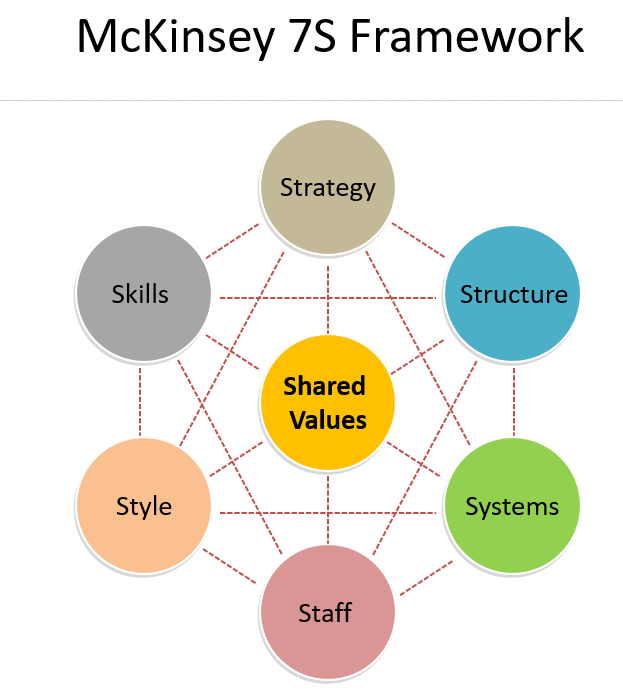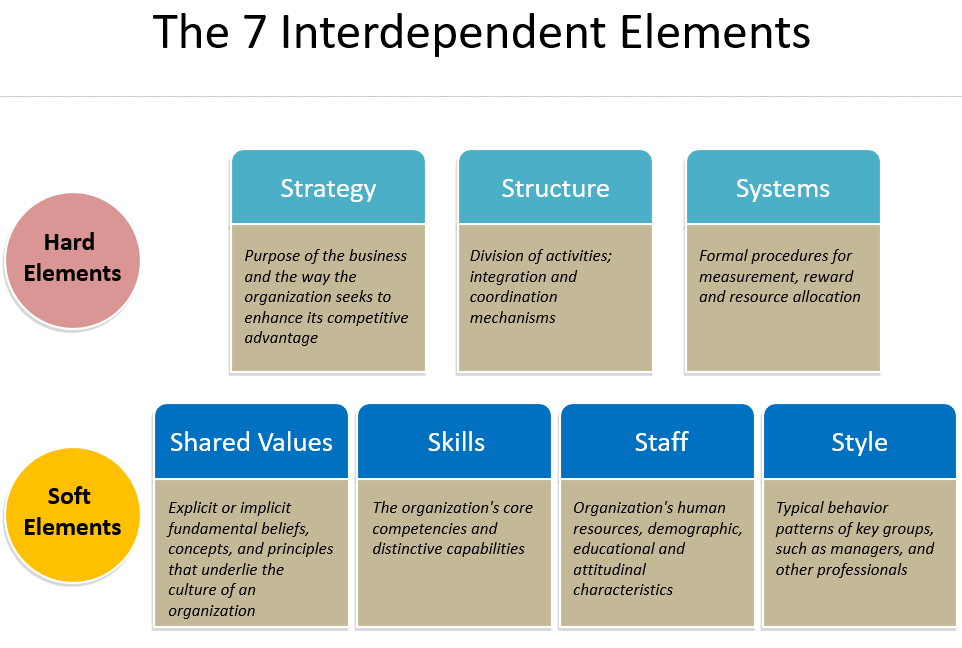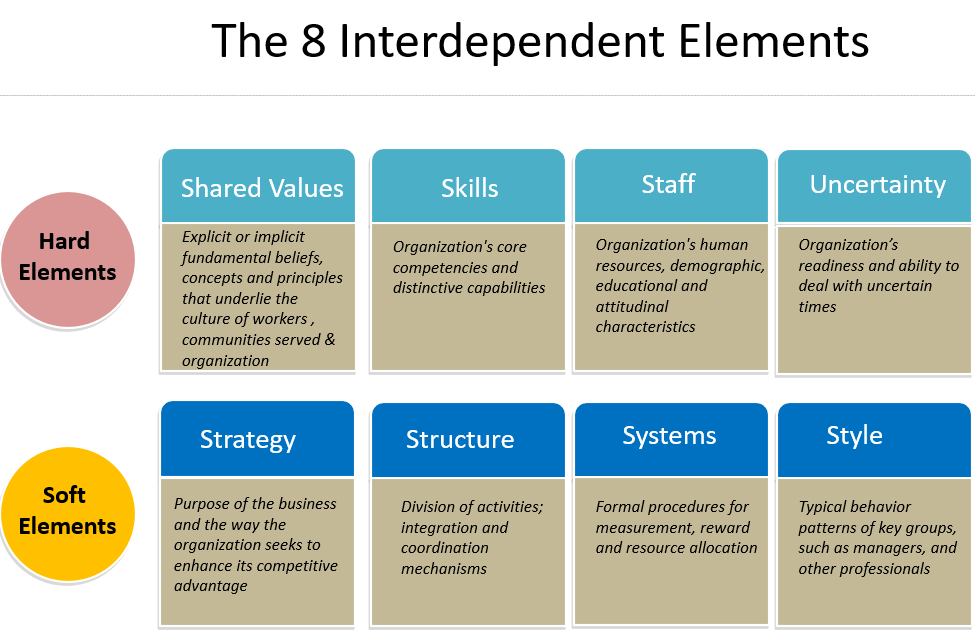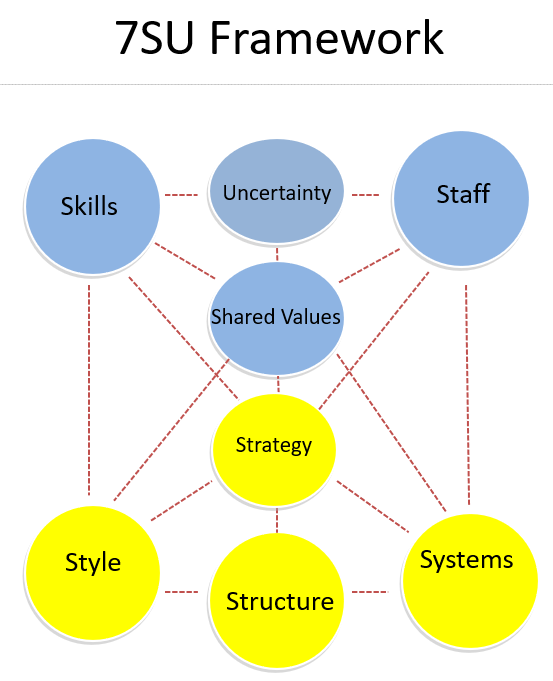Re-do Management Consulting Frameworks
As the prelude to my series (Who Are You Post Covid-19 ? Rama Or Ravana : Winner Or Warrior) of 7 articles (1 -7 starting with Retrospective History) mentioned earlier, let us start to look at some of the great management frameworks followed globally that definitely need Re-think & Re-set considering the ongoing uncertain times & far more challenging times to come ahead for future generations.
As Business Analysts always and anywhere in the world till we become managing Partners, we are eager and taught to learn, practise and follow case studies from the prestigious “Big 3 – Mckinsey, Bain, BCG” consulting firms that have set global standards and integrated approaches to solve client’s issues across sectors and continents attracting best solutions from best brains, experiences and talents.

Mckinsey 7S watershed framework was introduced in 1980’s by Robert H Waterman Jr & Tom Peters in New York, USA with the objective to analyse how well organizations are positioned to achieve intended objectives but with limitations on what these objectives serve to the community and how these objectives will be achieved not clearly mentioned as part of the framework. Irrespective, 7S framework is a Bible for management consultants to solve client’s problems.
Mckinsey 7S Framework diagram represents 7S i.e. Structure, Strategy, Systems, Skills, Style, Staff and Shared Values as the key parameters for achieving them.
- “Hard Elements” referred to mix of elements that are clear cut and influenced by management i.e. strategy, structure and systems where these elements focus on matters that influence organizations directly.
- “Soft Elements” refers to mix of elements which are fuzzier and influenced by corporate culture i.e. shared values, skills, style and staff.

In the 1980’s, Ronald Reagan was the US President and based his economic program of capitalism on the supply-side mandating reduction of tax, people to work longer and harder resulting in more savings and investment and then in more production stimulating the economy. At the same time, the US also pushed for huge slashes in social programs that were the backbone support for entry-level workers. Even though the US economy went for a recession but then rebounded basis inflation & GDP as key indexes measured but fiscal deficit kept on increasing over the 80’s decade despite supply push. The stock market crashed by 1987.
Definitely, 7S watershed framework would not have sustained organizations or investors alone in such times to meet their objectives. During the current pandemic, following the 7S framework –
- None of the “Hard Elements” i.e. strategy, structure, and systems that have been focusing on matters that influence organizations before pandemic like cash flow, cash generation, cost optimization, shareholders and investors value, demand generation, expansion could influence positively in any way during the year 2020 & near future irrespective of investments made earlier
- On the other hand, “Soft Elements” i.e. shared values, skills, and staff paradoxically have become the “Hard Elements” binding co-workers, business partners, and leaders to keep the organizations sail and float through.
- Strategy, Structure, Systems, and Style have become the “Dependent Variables” while Shared Values, Staff and Skills (of Staff) have become the “Hard Elements” influencing the organizations effectively forward
I have researched extensively, speaking to CXO’s, directors and senior management lately basis their organizations performance during pandemic that the management consulting frameworks being referred over decades need “New Versions” or “New Frameworks”. It has been a complete massacre on elements, dependence on elements and outcomes from elements since pandemic.
Basis above findings, most recent case studies, facts and figures received and posted on social media from across industries and globe, it is important to understand the new management consulting framework called “7SU Framework” from my colleagues & me relevant to all times. “Missing” values from each employee level, unit level and served communities goals will have to be included in shared values to ensure consistent growth & healthy business model.

- “Hard Elements” referred to mix of elements that are clear cut and influenced by management have been focusing on matters that influence organizations directly i.e. Shared Values (community, workers & organization), Staff and Skills (of staff)
- “Soft Elements” referred to a mix of elements which are fuzzier and influenced by corporate culture now include Strategy, Structure, Systems, and Style that can be re-set basis “Hard Elements”
- “Uncertainty” has been the missing “Hard Element” that has been neglected or looked at only post facto but in bits and pieces by governments, organizations, leaders, and management consultants.

It is important to note that man-made adversities generally have a shorter duration & short impact to manage or solve. In fact even shorter memory to remember. Add yourself as many synonyms to the word pandemic like calamities, disasters, catastrophes, cataclysm, crisis, misfortune, adversity, tribulation, etc through human history to check 7SU framework & compare with other frameworks that we will go through to upscale as a global crisis leader in addition to our management consultant roles.
About the Author: Ashish Swarup

With over 10 years of international experience with global CXOs, Ashish Swarup is a Senior Strategy Consultant currently pursuing his Global MBA at SP Jain. In his last role, Ashish was a Client Offerings Engagement Leader with IBM and worked with multi-location team management responsibilities.
Would you like to read more articles from the SP Jain community? Click here.




